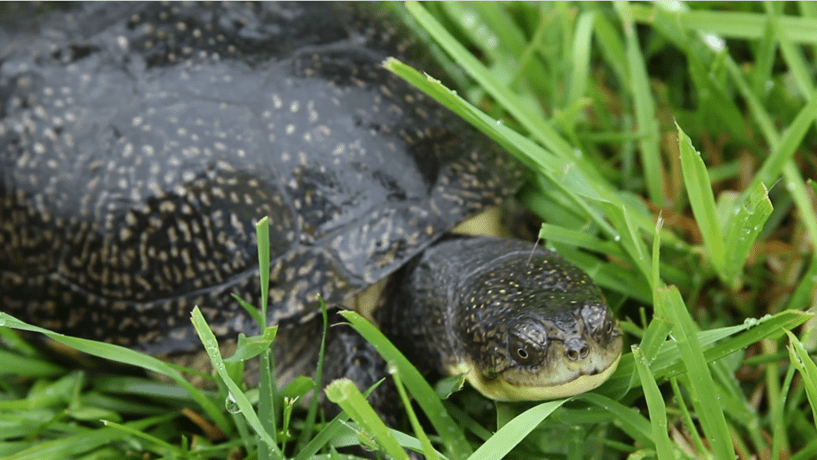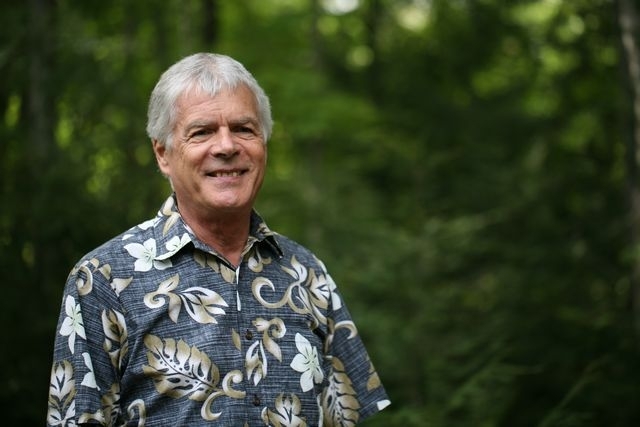Is biodiversity declining in Muskoka?
Sightings of 48 species at risk within the watershed can be logged online to find out.
By Dr. Peter Sale.

Globally, biodiversity is declining.
As humans and our livestock progressively monopolize energy and nutrients and repurpose natural lands for our use, we deprive other species of space to endure. Species populations become smaller and the number of different species present shrinks.
Scientists estimate the rate of extinction of species is now 1,000 times greater than what is considered normal through geological time (except during mass extinction events). Many scientists assert that we are now entering the sixth great mass extinction; the previous one was 66 million years ago, when the last of the dinosaurs disappeared.
How far has our monopolization of space and biomass already gone? Oscar Venter and colleagues reported in 2016 that pastures, croplands, residential and industrial lands now account for about three quarters of the global land surface. Humans and their livestock account for 18 times more biomass than all the wild mammals and birds on the planet combined! Increasingly, humans also use all the ocean for mining, commerce and recreation, while fishing the entire ice-free ocean intensively.
But back to Muskoka — 48 species at risk (SAR) occur here, and the 2023 Muskoka Watershed Report Card states this is up by two since 2018, the last time we did a report card. That increase arises because six species present on our list in 2018 were removed while eight other species were added — but what does this really mean?
It means not much at all as the number of SAR is a very poor measure of the biodiversity in a region. The list of SAR in Ontario is dependent on “interested parties” (often conservation NGOs) bringing species to the attention of the Committee on the Status of Species at Risk in Ontario (COSSARO).
A provincial panel of technical experts, COSSARO reviews available evidence to determine the status of each species it tackles. Species which do not attract the attention of interested parties can quietly go extinct without COSSARO or anybody else even noticing. This explains why there are lots of birds on the Ontario SAR list, but hardly any insects, few other invertebrates, few plants and so on. It is a list of species that interest people and may be at risk of extinction, not a comprehensive list of at risk species in the province.
Furthermore, just because a SAR occurs in Muskoka does not mean its Muskoka populations are declining. SAR might be doing well here because of the abundant natural habitat, or they might not. We do not know because very few studies are examining the status of such species in Muskoka.
It is probable that in at least some of our waterways, there are species of zooplankton quietly going extinct but not classified as a SAR. Calcium decline, increases in road salt pollution and the effects of the introduced Spiny water flea which preys on other zooplankton, among other changes, could all be causing substantial losses of sensitive species like daphnia (water fleas). Many terrestrial species, particularly those that require undisturbed interior forest habitat, are also likely to be at risk.
Just as a plane can pop one or two rivets and continue to fly, but will fall from the sky when too many are lost, ecosystems can function well even with the loss of a few species — but more than a few? Whoops!
We all can make vital contributions to the very limited knowledge on rare species in Muskoka by reporting sightings of species on the several apps like iNaturalist and NatureWatch (with its WormWatch, FrogWatch, MilkweedWatch and PlantWatch). If you are interested in the natural world, if you get out into nature, why not share your discoveries this way and help build better information on our biodiversity?

This is the eleventh in a series of articles from the Muskoka Watershed Council on “The State of Our Watershed” published on MuskokaRegion.com. Each article explores an aspect of our environment revealed in our 2023 Muskoka Watershed Report Card and identifies new management challenges. Series editor and this week’s contributor is Dr. Peter Sale, a marine ecologist retired from academia and a Muskoka resident since 2006. Peter is Director and Past Chair of the Muskoka Watershed Council.
